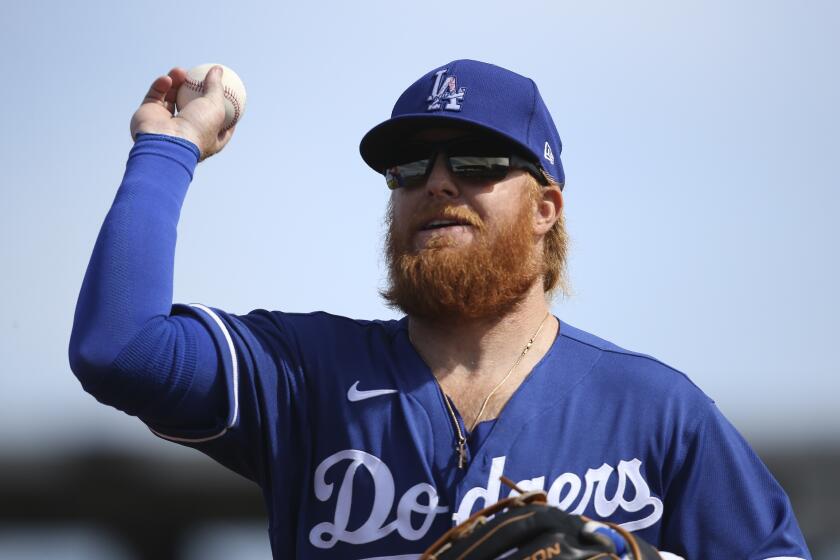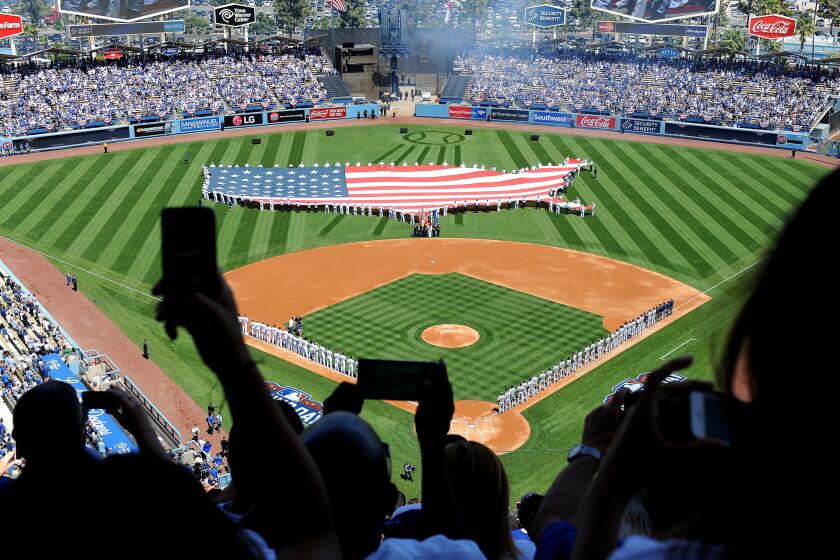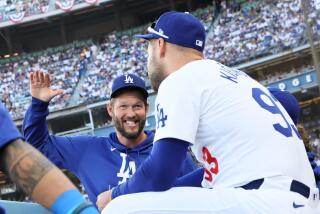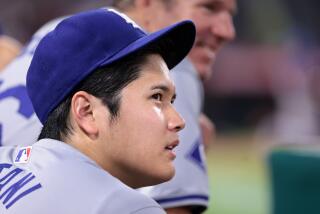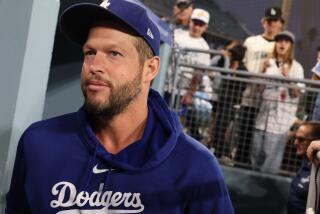Joe Maddon is 66 and Dave Roberts had cancer. Is it safe for them to manage now?
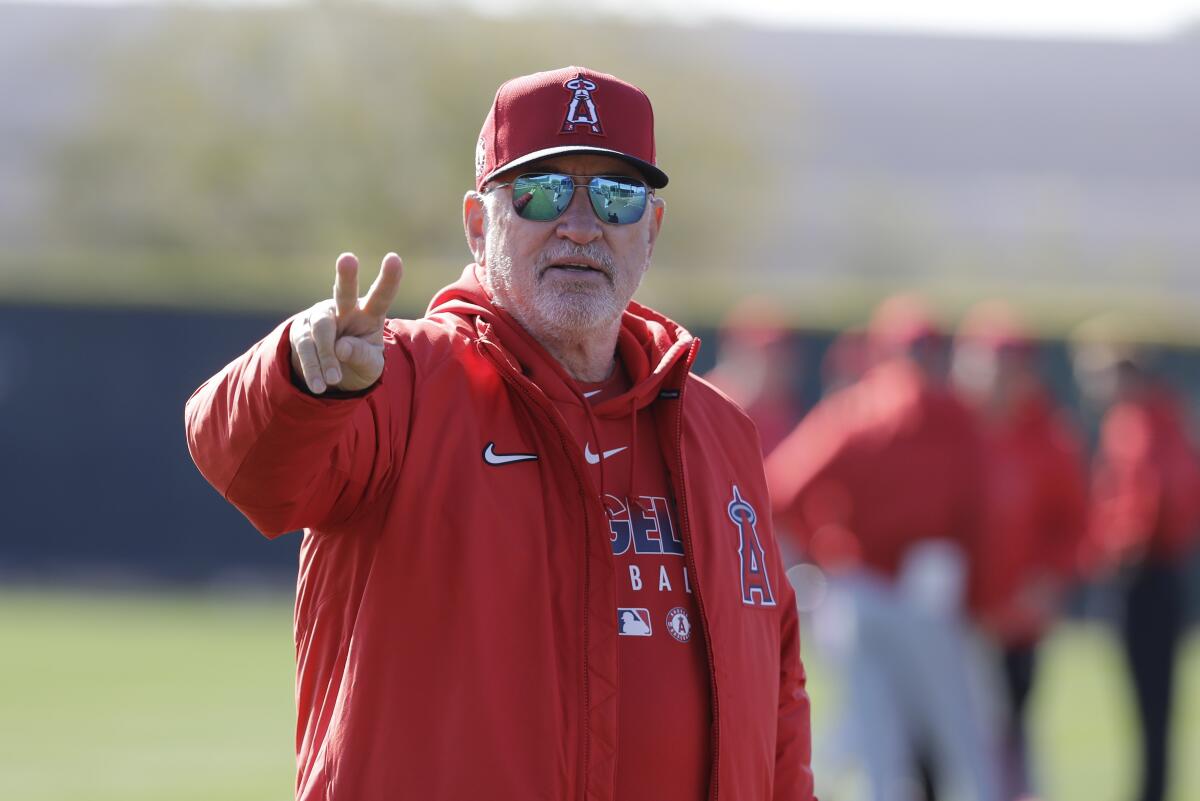
His earned-run average, groundball percentage and strikeout-to-walk ratio are only a few of the numbers that will determine whether sinker-ball specialist Scott Alexander sticks with the Dodgers if baseball is able to launch a pandemic-shortened season.
Alexander’s blood-sugar levels could be just as vital. As one of at least three major leaguers with Type 1 diabetes, he must be attentive to his glucose numbers to avoid severe illness if he were infected by the novel coronavirus.
“From what I’ve been told by our doctors, as long as I keep my glucose numbers in good range and keep myself healthy, then I’m not really at any higher risk,” said Alexander, a left-handed reliever who went 3-2 with a 3.63 ERA in 28 games of a 2019 season marred by a nerve problem in his forearm.
“I’m continuing to stay in contact with our medical staff and to stay on top of it. If the doctors were to tell me at some point that I was definitively at a high risk and it could be fatal if I were to contract the coronavirus because I have Type 1 diabetes, then I would have to seriously consider not playing.”
A 67-page document outlining Major League Baseball’s proposed health and safety protocols for avoiding the spread of the coronavirus, sent to players May 15, includes three pages devoted to “protocol for high-risk individuals,” with a link to the Centers for Disease Control and Prevention website.
Among those at high risk, according to the CDC, are people immuno-compromised because of conditions such as cancer, people with serious heart conditions, people with diabetes, and people 65 and older.
Dodgers manager Dave Roberts, 48, was diagnosed in 2010 with Hodgkin lymphoma, a form of cancer that develops within the body’s immune system.
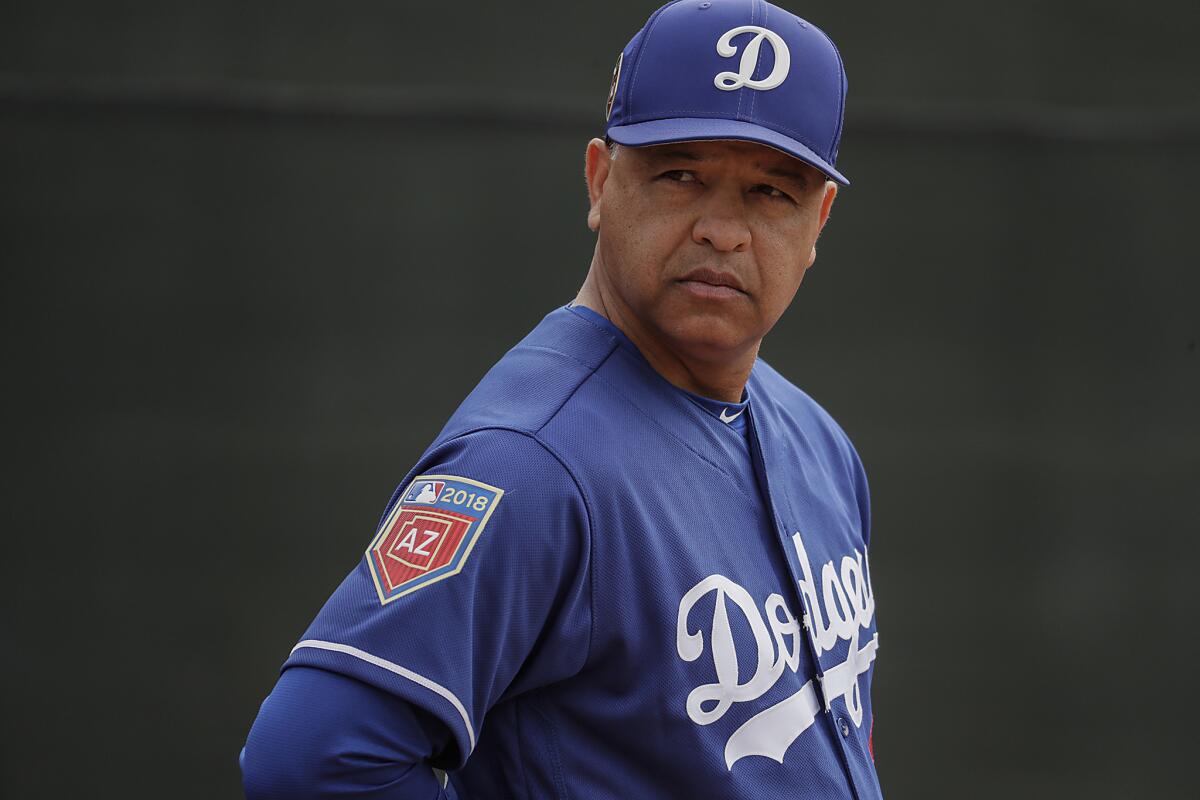
Cleveland Indians pitcher Carlos Carrasco, 33, was diagnosed last May with chronic myeloid leukemia, a type of cancer that starts in the blood-forming cells of the bone marrow, invades the blood and can cause persistent fatigue.
Dodgers closer Kenley Jansen, 32, suffered an atrial fibrillation episode in August 2018 as a result of a condition that leaves him vulnerable to an irregular heartbeat at high altitude. He underwent an ablation procedure to correct the issue that November.
Alexander, 30, was diagnosed with Type 1 diabetes in 2016, after experiencing severe weight loss, soreness and fatigue. He manages the condition with diet, exercise and insulin shots. Atlanta outfielder Adam Duvall and St. Louis reliever Jordan Hicks reportedly suffer from the same ailment.
New Angels manager Joe Maddon, 66, is one of six managers over 60, with the oldest 70-year-old Dusty Baker of the Houston Astros. According to the CDC, eight of every 10 deaths reported in the U.S. have been adults 65 years or older.
Though he has no underlying medical conditions that make him more vulnerable, Maddon has spent the two months since baseball shut down in mid-March bolstering his defense against the coronavirus, attacking his eating and exercise regimen with renewed vigor.
The MLB draft will be just five rounds and held virtually. Undrafted players can’t sign for more than $20,000, meaning many likely won’t turn pro for now.
He’s dropped from 208 to 193 pounds through dieting and exercise, riding his bike 10 to 15 miles a day. He’s upped his daily dose of vitamins. He’s getting enough sleep. A noted wine connoisseur, Maddon has cut back to one glass a week.
“I’ve been on a mission,” Maddon said. “I figured in order to make this work and feel good about it, I need to take care of me too. My tack is to work hard, eat well, exercise, get my rest and get myself in good shape. I took it to another level, and we’ll see how it plays out.”
Upon returning to Southern California from the Dodgers’ spring training complex in Arizona in March, Roberts quarantined himself for two weeks. As he learned about the coronavirus and its potential impact on those with cancer, he grew somewhat concerned about a possible return.
Roberts called Dodgers head athletic trainer Neil Rampe, who called Dr. John Plosay, one of the team’s physicians. The manager was told his cancer history would not increase his risk for severe illness from COVID-19, Roberts’ nine cancer-free annual PET scans since 2012 and his excellent overall health working in his favor.
“I asked [the doctor] if I were to go back, does that put me in any different [risk] category, and he said absolutely not,” Roberts said. “He didn’t really give me any details, and I didn’t really ask.”
The CDC warns that COVID-19 can damage the respiratory system and make it harder for the heart to work, a possible concern for Jansen. Attempts to reach the Dodgers’ all-time saves leader were unsuccessful, but Roberts said Jansen has received similar clearance from the team’s medical staff.
“From everything I’ve heard, Kenley is not at any higher risk than anyone else,” Roberts said. “He’s a caged lion right now. He can’t get going soon enough.”
Added Jansen’s agent, Adam Katz: “To my knowledge, Kenley is ready to go.”
Carrasco, who is married with five kids, returned from his diagnosis to make 11 relief appearances last September. In a recent interview with ESPN, he acknowledged, “I don’t know how this is going to work when we start playing baseball again.”
But if owners and players can agree on salaries and health and safety protocols and salvage a season, Carrasco insists he will play.
Players are reviewing MLB’s 67-page plan to protect them from the coronavirus. Here’s everything you need to know about how it will change baseball in 2020.
“I just want to be a good dad and take care of my family,” Carrasco said. “I know some people have told me ‘you have to take care of yourself because you have this, you have that,’ but at the same time, as a father, as a son, friend, brother, I have to do everything for my family.”
According to MLB, it will be the responsibility of each team physician to identify individuals who, by virtue of their age or medical history, are at a higher risk of developing severe illness or complications from coronavirus exposure.
If, despite additional precautions and measures offered by the club, and after consulting with the team physician, high-risk individuals believe it would pose an unreasonable risk to their health to participate in the 2020 season, they may elect not to participate. It’s not clear how much, if anything, they would be paid.
“We hope that we will be able to convince the vast majority of our players that it’s safe to return to work,” commissioner Rob Manfred said in a recent interview with CNN. “At the end of the day, however, if there are players with health conditions or just their own personal doubts, we would never try to force them to come back to work. They can wait until they feel ready to come.”
More to Read
Go beyond the scoreboard
Get the latest on L.A.'s teams in the daily Sports Report newsletter.
You may occasionally receive promotional content from the Los Angeles Times.

